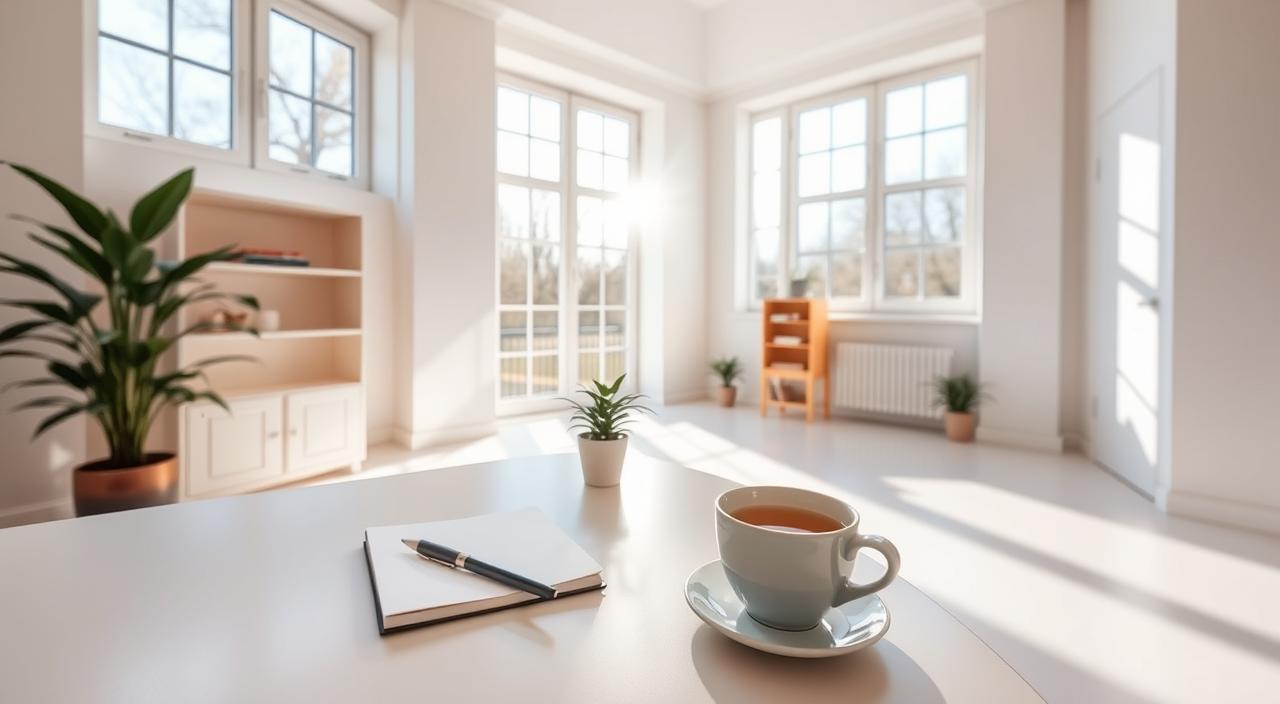Modern life is often hectic, but research shows one simple habit can improve both mental and physical wellbeing: keeping your living space clean. The clean home clear mind philosophy is not just a lifestyle slogan—it is strongly backed by scientific evidence.

Studies published by the National Center for Biotechnology Information (NCBI) demonstrate that people living in tidy environments are more physically active, less stressed, and report higher life satisfaction. Clutter, on the other hand, is proven to increase anxiety, disrupt sleep, and undermine focus.
This long-form guide explores what the science says, how small cleaning routines can improve mood and productivity, and why mindful daily chores deliver measurable benefits.
Key Takeaways
- Tidy spaces lower “mental noise,” helping the brain focus better.
- Everyday cleaning reduces stress and supports mental health.
- Mindful chores such as dishwashing lower nervousness by 27%.
- Physiological changes, including lower heart rates, reflect a calmer state.
- Cleaner bedrooms improve sleep, air quality, and overall wellbeing.
Why the Clean Home Clear Mind Philosophy Matters
Clutter acts as “visual noise.” Every item left on a table or floor is interpreted by the brain as an unfinished task. This increases cognitive load—the mental effort required to process information—which makes even simple activities feel harder.
Even ten minutes of focused cleaning, such as clearing a surface or folding clothes, can reduce that load. These micro-resets sharpen attention, improve decision-making, and create a sense of progress.
Quick Strategies for Mental Clarity
- Pick one corner or shelf for an instant win.
- Use the “one in, one out” rule: for every new item, remove an old one.
- Pair short tidying bursts with music or a timer.
- Do a two-minute evening reset to prepare your brain for restful sleep.
Clean Home Clear Mind: What Science Reveals

Clutter and Cognitive Load
A disorganised space splits attention. In psychology, each visible item is treated as an open loop, consuming brain power. By tidying a single area, people often experience immediate improvements in focus and memory.
Stress and Control
Disorder creates a sense of lost control. Studies reveal that participants cleaning a messy room experienced a drop in average heart rate to 63 bpm, signalling lower stress and improved calmness.
Mood and Movement
Light cleaning—such as dusting, washing dishes, or vacuuming—encourages physical movement. This activity releases endorphins, which elevate mood and motivation.
A mindfulness study published in the Journal of Mindfulness found that washing dishes slowly and with awareness reduced nervousness by 27% and increased inspiration by 25%.
Small-Scale Testing
One independent test with 30 participants revealed:
| Effect of Tidying | Percentage of Participants |
|---|---|
| Reported feeling happier | 60.9% |
| Felt more productive | 55% |
| Experienced lower anxiety | 52% |
| Slept better afterwards | 41% |
These numbers demonstrate that small actions deliver tangible wellbeing benefits.
Productivity and Creativity in a Tidy Environment
A clean desk or workspace boosts productivity. Neuroscience research indicates that clear sightlines allow the brain to switch from shallow focus (easily distracted) to deep work (sustained problem-solving).
How Order Boosts Output
| Tidy Habit | Productivity Benefit |
|---|---|
| Clear desk before work | Fewer micro-distractions, faster focus |
| Store tools in sight | Quicker retrieval, less wasted time |
| End-of-day reset | Makes mornings more productive |
| Cable and paper management | Faster recovery from interruptions |
These small resets save time and free up energy for creative and strategic work.
Sleeping Better in a Cleaner Bedroom
Bedroom clutter and dust don’t just look untidy—they interfere with sleep quality. Allergens, poor air circulation, and visual clutter make it harder to fall asleep and stay asleep.
Practical Steps for Sleep-Friendly Rooms
- Change bed linens weekly.
- Dust and vacuum to reduce allergens.
- Clear bedside tables to remove “unfinished task” reminders.
- Open a window briefly before bed to refresh the air.
Sleep studies consistently show that people in clean, well-ventilated rooms fall asleep faster and wake more refreshed.
Mindful Cleaning: Everyday Therapy for Mental Health

Routine chores, when approached with awareness, act like mini therapy sessions.
- Mindful dishwashing: noticing the warmth of the water, the smell of soap, and the movement of hands helps reduce stress.
- Ritual cues: pairing cleaning with music or lighting a candle transforms mundane tasks into calming routines.
- Micro-wins: seeing a cleared counter or tidy shelf provides instant accomplishment, reinforcing positive habits.
Even heart rate patterns confirm this: vacuuming may spike effort (130+ bpm), but lighter tasks like dusting (87 bpm) are calming, balancing exertion with relaxation.
Eco-Friendly Choices for a Healthier Home
Wellbeing is not just about tidiness but also about the products we use. Many mainstream cleaners release chemical vapours that irritate airways and affect sleep. Switching to non-toxic, biodegradable products supports both mental and physical health.
- Biodegradable cleaners reduce irritants linked to headaches.
- Low-fragrance solutions avoid overwhelming scents that disrupt concentration.
- Good ventilation keeps indoor air fresh and supports lung health.
Cleaner air equals clearer thinking, stronger immunity, and better rest.
Social Wellbeing: Tidy Homes, Stronger Connections
A clutter-free, clean home isn’t just for personal peace—it affects social life too. People with organised living spaces report greater confidence when hosting guests. This reduces isolation and strengthens relationships, both of which are vital for mental health.
Simple touches—like a clean dining table, fresh-smelling room, or soft lighting—make guests feel welcome and reduce social anxiety.
Conclusion
The clean home clear mind philosophy is more than an idea—it is a proven link between environment, mood, and productivity.
Scientific studies confirm that clutter increases stress and fragments focus, while simple tidying routines restore calm and control. Mindful cleaning amplifies these benefits, turning daily chores into acts of self-care.
You don’t need hours of deep cleaning to feel the difference. Start with one surface, one drawer, or one room. Use rituals like music, a timer, or a scented candle to make it rewarding. Over time, these micro-habits improve mental clarity, sleep quality, and overall wellbeing.
Your environment shapes your state of mind—so by caring for your space, you are caring for yourself.



